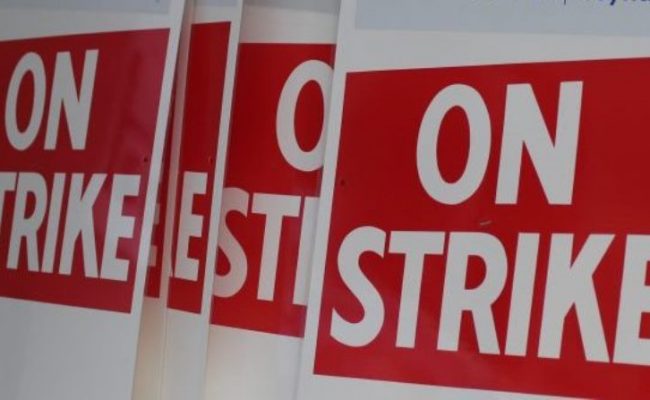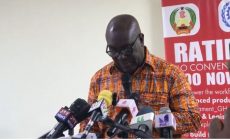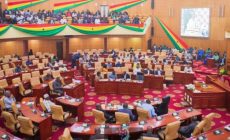Organised Labour declares strike over debt exchange programme
- Posted on
- Comment

Organised Labour has declared an indefinite strike from Tuesday, December 27.
This follows what leaders say is government’s refusal to listen to their “advice” on the Domestic Debt Exchange Programme.
According to Labour’s spokesperson Dr Anthony Yaw Baah, who is also the Secretary General of the Ghana Trades Union Congress (TUC), government seems to have turned a deaf ear to their request to have pensions of workers exempt from the Programme recently launched.
“We are asking government to exempt us from the debt exchange programme,” he told journalists at a press conference in Accra on Monday, December 19.
“We have already told the world that if government doesn’t do that, we will advise ourselves. Today, we are here to announce the advice.
“The advice is very simple. We have all agreed that because the government has refused to grant our request, we have decided firmly that all workers of Ghana are going to strike on December 27, 2022, and we will be on strike until our demands are met.”
Government’s introduction of the Programme on Monday, December 5 has been met with stiff resistance from Organised Labour.
Most of the worker unions point out that government did not engage them before rolling out the policy, whose implementation date has been moved to Friday, December 30 over the controversies stirred.
Under the Domestic Debt Exchange Programme, domestic bondholders will be asked to exchange their instruments for new ones.
Existing domestic bonds as of Thursday, December 1 will be exchanged for a set of four new bonds maturing in 2027, 2029, 2032 and 2037.
The annual coupon on all of those bonds will be set at 0% in 2023, 5% in 2024 and 10% from 2025 until maturity with coupon payments done semiannually.
Organised labour has demanded assurances from government that pensions will not be affected but it has remained silent on this.
Engagements are said to be ongoing to make the Programme successful.
Already, government is also suspending the servicing of some external debts due to the deterioration of the economy, which has been taken to the International Monetary Fund (IMF) for rescue.










 (Selorm) |
(Selorm) |  (Nana Kwesi)
(Nana Kwesi)